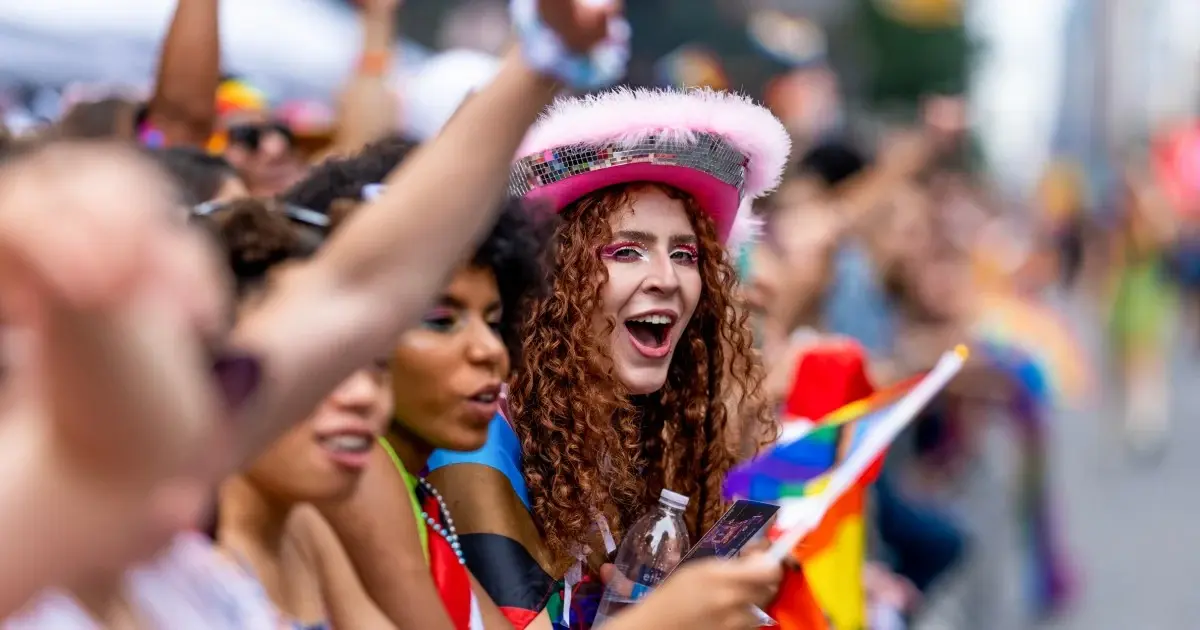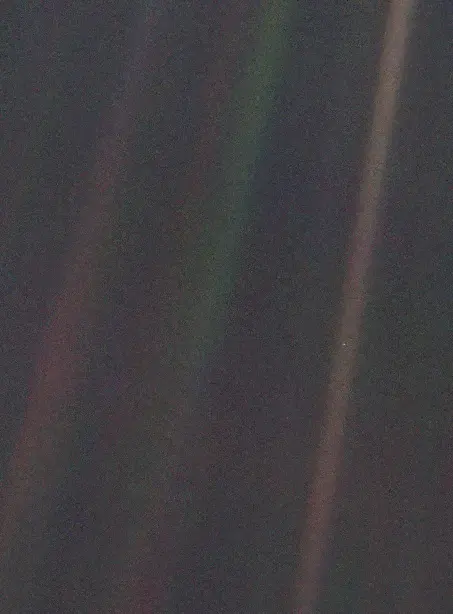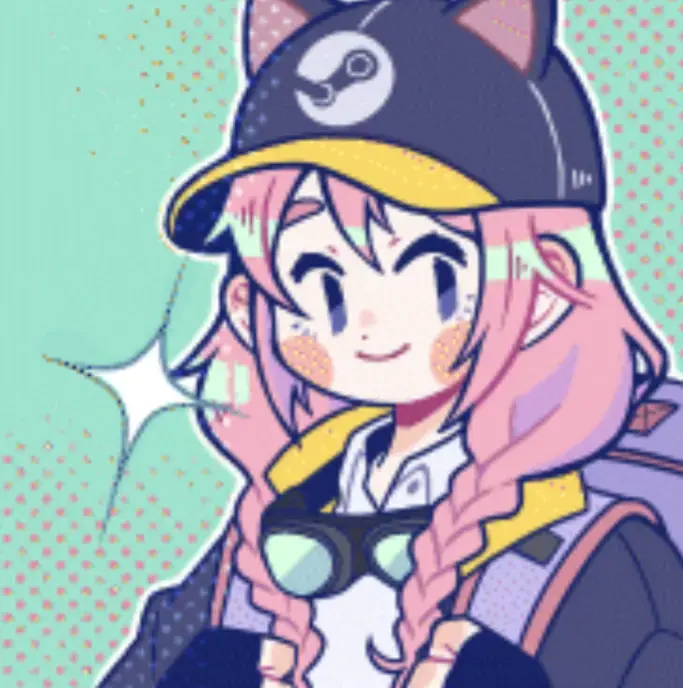I’m fifty. I have known that I am bi since childhood. I lost my virginity with a man a year before I ever had sex with a woman. I can count the friends and family that know I am bi in one hand and I would still not drop the chopstick.
Gen-Z isn’t more queer. Gen-Z just has had the privileged of fearing the closet door less.
The fight against bigotry and homophobia has been slow, long, and arduous, but the progress is undeniable. That’s why you see so much push back now. Some snowflakes quickly melt without the safetynet of their bigoted gender norms.
Absolutely. Older conservatives will tell you that young people are being manipulated into believing they are queer when they are just less afraid to admit that they are. I expect this percentage to keep rising as more bigots die out and eventually plateau in another generation or two.
While I don’t expect bi sexualities to become more common than straight, I do think it will become common enough that the stigma will eventually nearly disappear. There’s a reason my parents don’t know I’m bi but I’ve never felt afraid to tell a gen z person that I am.
Agreed. I would add that that this applies to self-reflection, too. As social pressure reduces people are more likely to be more open minded and become aware of, or admit to themselves, their own same-sex attractions.
So there is coming out to your friends &family, but also there is coming out to yourself.
It’s great seeing people become more honest and open about themselves.
It’s always been suspected that bisexual people (of varying levels on the Kinsey scale) make up a good half of the population. Combine that with all the other possible LGBTQ sexualities and including trans individuals and you would find even 30% to seem rather low.
From a spectrum point of view, I suspect that something like 100% might be Q, as in everyone having their own combination of places on multiple orthogonal axes of attraction and identity… and that “pure” sexualities are just in denial of some part of themselves.
Paradoxically, it would mean that lacking a full description of someone’s attraction and identity pattern, the closest “sexually” useful description in the sense of matchmaking, would be either that of their genitals, or none at all, with there being better matchmaking predictors that are not sexual.
The rest of labels, would be more of an approximation of one’s tolerance and openness, rather than actual descriptions.
I think we can see some of that in the proliferation of orientation and identity “pride flags”, which seem to have exploded in number, and represent more of a partial personal pattern rather than that of an actual group. It’s still a nice thing to see people freely display their assumed identities, but in the long run I’d expect some systematization and have them classified according to the set of positions on which axes each one represents.
Maybe in some future version of Unicode, there could be a similar encoding to the one used for country flags, which are made of country code letter markers, or the ones for groups of people like 👩👩👧👦 or 👨🏿🤝👨🏼, but for sexual pride flags.
I really don’t like the idea that mono sexualities are just in denial. As a lesbian, there might be fictional men that I like but on real life, I just would rather not be with any guy. And it’s not like I ever tried looking at a guy to see if I find something attractive about him. But I just don’t. Kinda funny how only men that don’t exist appear attractive to me xD And compare that to women and enbies, where I just love everything: their hair, their soft face, their chest, makeup, their cuteness (and sometimes their hotness xD), the way they talk, the things they are most passionate about, and all the NSFW stuff too :D
I understand the experience is not universal, it’s perfectly fine if attraction works for you some other way. But when I analyze my attraction it works two way. First, just the sheer association with women and enbies. I don’t have genital preference, I like women with either equipment, but I would never date (or even be attracted to) a trans man, even if they’re pre-everything. Just the mere fact of knowing they’re a man simply turns me off. And the same applies viceversa: if I learn that someone I know is actually a woman, even if they’re presenting male, no hormones, etc. it’s like my mind opens up the possibility to being attracted to them (even if to a lesser extent). Which brings me to my second point, hormones.
I’ve heard this one from gay men too so I think I’m not alone in this one. When someone is taking E (or T in their case), it’s like everything changes regarding their physiology. Smell, skin, hair texture, shape, to name a few. And smell is a big one to me: manly smell might as well be repellent to me xD, but I know of people attracted to men that it is the entire opposite. And that’s ok! Physiological changes is not something that can’t be ignored for attraction either, after all we really don’t control what makes us tick, our brain is wired to determine what attracts us. I don’t make a conscious decision to find womanly smell attractive, my brain just responds to it positively.
To clarify, I think most people could be bi/pan, I don’t disagree with that. But I disagree that everyone is bi. Or else, how do you explain that throughout history, gay and lesbian people, rather than going the “easy” route and date the opposite gender, dared to date the same gender despite persecution and potentially death? You would probably say something about how they could’ve been bi but they had a very marked preference, but to that I say, isn’t that gay enough?
I see this from another point of view: I think that trying to define a “pure” sexuality, is falling into a No True Scotsman fallacy.
You have described some of your attraction pattern on several axes, and called that “lesbian”. Fine, nobody has the right to tell you otherwise. What I don’t see as clearly, is that it describes a “mono sexuality” or “pure lesbian”.
Sounds to me like you’re defining “lesbian” as “doesn’t get attracted to males, unless they don’t look, smell, or identify as males”… but that still leaves a whole lot of possibilities, while at the same time others might define “lesbian” in some other terms, including whether both people need to meet the same criteria, and that would be their definition of “mono sexuality”.
The point you raise about history, is where I think the labels, as we have them, make more sense: as a transitory means to fight for the rights of people who were otherwise oppressed. It’s a high call to have a heteropatriarhy suddenly become tolerant of all possible sexualities, so fighting for chunks at a time makes more sense. We still shouldn’t lose sight of the end goal, which should be letting everyone be themselves, in all their complexity.
Another interesting thing about history, is that throughout different periods of oppression, there always used to be “roommates” and “travel companions”, who used to share the same bed, behind closed doors. Nowadays some of the most oppressive cultures, still have a similar “out of sight, out of mind” approach. So the fight is more for the right to public expression and social acceptance, which of course benefits from labels, flags, and all the bells and whistles.
Dunno, maybe I’m raising the point too soon, maybe there needs to be another half a century of fighting chunk by chunk, adding more letters and symbols to the LGBTQQIP2SA+ initialism… but I sure wish we could do away with it already, and simply call it “sexuality”.
Sure, words can have subjective meaning that can change from person to person and even over time. So two people perhaps don’t completely agree what it means to be a lesbian. But the general idea usually is something that can be agreed upon. But what is the point of arguing against monosexuality in the first place? Because to me it sure sounds a lot like the “you haven’t found the right man” argument. Even if I was attracted to men and was in some kind of denial, like you implied in your first post, it doesn’t change the fact that I don’t want to date men, simple as that.
Also I don’t think you argued concretely towards my historic argument? To me it makes it sound like you’re implying women willingly chose to be exclusively lesbians and men, exclusively gay, to fight for wlw and mlm rights. Which i can imagine some did, but certainly not everyone.
Part of my point, is that there are individuals who self-label in ways that can’t be agreed upon by all (see: TERFs). The point of arguing against “monosexuality”, is to get people to define their positions on multiple axes, which more people could agree upon (with the definition, not necessarily with the positioning).
to me it sure sounds a lot like the “you haven’t found the right man” argument. Even if I was attracted to men and was in some kind of denial, like you implied in your first post
No, that would imply a single male/female axis, while my argument is there are more axes to take into account. If you were in some kind of denial, it would be about the existence of other axes, that are as, or even more, important than the male/female one. But then you went on to define yourself on several other axes… so what are we even talking about here?
it sound like you’re implying women willingly chose to be exclusively lesbians and men, exclusively gay, to fight for wlw and mlm rights
Chose to label themselves only as, independently of what they thought themselves to be. Fewer labels are easier to fight for, than more labels, which is where I see it useful to have a few “umbrella” labels. Like, right now, I think a good umbrella label would be “Queer”, even if I’d rather wish no label was necessary anymore.
PS: Hm… is “denial” a trigger word here? Not sure what other word I could use to express my point, but I’ll stop if that’s the case.
Are the axis you are referring to romantic, platonic, sexual, etc. attraction? Because I have no problem with those, but in that case I identify as a romantic and sexual lesbian.
And yes I would say denial is a very strong word. It implies you know better about how a person feels than themselves.
I hear you, my apologies. I didn’t want to imply that I know better.
The idea I’m trying to express is “it’s a complex situation with many nuances that a simplistic label doesn’t convey”. I would like to include that those using a label may not be aware of all those nuances, but wouldn’t want to impose any particular interpretation or assumptions. Not sure which word or expression would best convey that… oh well.
The axes I’m referring to, would be… [identity1]×[attraction12]×[identity2]×[attraction23]×[identity3], and the sum of them all would give one’s identity… but maybe that doesn’t make much sense.
For example, something like: “A part of me sometimes identifies as a female with platonic attraction towards anyone who usually gets physically attracted towards anyone but males”, and at the same time “A part of me sometimes doesn’t identify as any gender and is sensually attracted towards anyone looking cute, but more if they identify as female and/or smell like food”, and at the same time “A part of me identifies slightly as either male or female and is slightly sexually attracted to anyone presenting female”, and… so on.
All of that is a mouthful, the number of possible combinations are mind blowing, while there are labels for only the most clear cut ones, plus a few labels for some parts of the rest, then nothing.
I wish more people realized that these things are there, that they are normal, gave them a structured set of names, and accepted that they themselves might fit on some of them even if it isn’t in the definition of some more traditional label.
And going back to the beginning, I’d expect most people to fall somewhere other than 0 on more than one of these axes. Just by the sheer amount of possibilities, it seems unlikely that someone would be “strictly this, and nothing else”.
30% is low but keep in mind there are still places in the U.S. that a gay couple could be disappeared and local law would do nothing.
There are still people in the closet due to fear and cultural ignorance, and while we have made good progress, we still have a long way to go.
Though the desperation that they are putting into their anti-trans campaigns is heartening (I know that sounds bad, hear me out) that they knew they had to shift their targets because of public acceptance of homosexuality. Thankfully most social circles have been immune to the -T sentiment and in a real way their bigotry campaign has actually had a Streisand effect.
There are more drag queen story hours now than ever, but still not enough just yet I feel.
Gen Z adults, along with millennials, were also more likely to identify as LGBTQ than Republican, the survey found.
Imagine your child coming out as Republican. I’d be devastated
Me as a parent: “How do we deserve this??? What will the neighbors think about that??? Republican??? Maybe, it’s just a phase.”
I know its a funny meme but up until Gamergate, the only way for the conservative party to grow was having more kids (hence the jabs at birth control and abortion).
Unfortunately now they have a chunk of edgybois that have been radicalized just in time to vote for cheetolini.
And it actually has damaged some families.
So its less ‘devastated by your kid coming out as conservative’, and more ‘horrified that your kid came out as a white nationalist’.
I would be especially thrilled if it turns out that republicunt’s inhumane treatment of LGBTQ people turned out to be what tips voting out of the hands of the conservative party.
Sure they can gerrymander along racial lines, lets see them try that bullshit along sexual identity.
Reminder that it takes much more effort to try and erase us from society, than to accept us.
This makes me so happy 🥰 go queers, be open about yourself, feel free to explore!
Yes my children! end the bigotry! become the wave!
Back in the early 90s we were told in school that ‘The total number of LGBT per capita is less than 10% and that makes it unnatural’
One of the grunge kids raised her hand and said ‘I don’t think that number is accurate, plenty of states still accept the ‘gay panic’ defense for murder.’
Teacher gasped like a fish for about 3 mins.
Fuck you Mrs. Saunders, you bigoted piece of shit.
So good
Naive and Potentially inflammatory question from cishet guy
15% as bisexual, 5% as gay or lesbian and 8% as something else
So as someone who’s not a member of the LGBTQ+ community, I’m wondering how the predominance of “bisexual” in this survey would be seen by others in the community?
For older peeps does it look like a bit of a fad or something for Gen Z to think they’re part of the movement/community without really being so, which strikes me as a wholly positive thing, even if it were somewhat of an affectation?
Otherwise, is there real tension between bisexuals and other queer folks?
I’ve certainly seen dismissive sentiments like this from more conservative people, but don’t know how the rest of the community (either older or not bisexual) look at it.
To me it looks like we’re just growing up (and maybe slowly still) about our sexuality/gender and how it’s more interesting than traditional role based and prejudicial conservatism. But even as a cishet guy, it strikes me that even I’d be happy labelling myself as bisexual in a survey though I have not had any of the difficulties or general experiences of the general LGBTQ community.
Also I hope it’s clear I’m not trying to inflame anything or piss anyone off. Please, if this is hurtful, feel free to delete/moderate or report.
If you’re attracted to both genders, then you’re bi whether you act on it or not. I think it’s more than just being an ally. People are recognising their sexuality more and not afraid to express it. The Kinsey studies would show it’s more of a spectrum than a binary. I think some older people in the lgbtqi community are less accepting of bisexuality as a concept, probably due to people using it as a deflection, or phase when exploring their sexuality historically. They might then choose not to express it due to intolerance, which led to people misunderstanding that bosexual people are just as valid. If you’re bisexual in a cos heterosexual relationship, you’re still bisexual, just like in the past gay people would live heterosexual lives. It didn’t make them straight. Being part of the lgbtqi community is not about having a shared experience of prejudice. The whole community activism purpose is to ensure that there is no prejudice in the future.
Otherwise, is there real tension between bisexuals and other queer folks?
Yes. From queer folk, it’s “This is just a fad for you. I can’t be serious with you, because when you stop experimenting, you’re just going to go back to straight relationships”. And on the other side of the coin, straight partners tell them that they’re really in denial about being gay, and that they can’t get serious with them, because when they eventually accept that they’re gay, they’ll leave for a gay relationship.
Too queer for straight partners, and too straight for queer partners, despite being neither.
If you want to read up on it, it’s called “bi erasure”.
Luckily I’ve found this is also a lot less common when talking to younger queer people. A lot of older gays have become unwilling to accept anything outside of what being queer meant when they were younger.
Intuitively that makes sense to me (let’s be fair … ageing sucks), especially for members of an oppressed minority.
Definitely. It’s hard to blame older queer folks for having some trouble empathizing with younger parts of their community that have generally had a much easier time expressing their sexually and are now shaping the community in ways they do not understand. Of course I’ll never excuse bigotry, but I do think most of older gays reservations about the way their community is changing come from a place of fear not malice.
From my experience as a bi person, we often get treated like shit by both sides, but it’s worse from gay people.
Mind you that’s a minority of people acting like arseholes, but there’s certainly an attitude around that we’re faking it or something.
The way I see it, it’s a spectrum and I think more people align somewhere on that than they do as an extreme binary option. So even if you’ve never had any relations with a same sex person, that doesn’t change where you fall.
In my experience a lot of both straight people and gay people are both see sexuality as a team sport where someone has to pick a side and treat bi people terribly.
Both see bi people gay but not admitting who they ‘really are’. Both see it as the person being indecisive, and also tend to worry about someone being unsatisfied and wanting to always be in a relationship with both sexes at the same time all the time, which is a funny contrast to not picking a side. I’m using sex instead of gender here because people making those comments are always describing the desire as the bi person feeling a desire for the other genitals. I find this pretty ridiculous since those same people that think bi people can’t be satisfied while monogamous do think straight and gay people can be.
That isn’t everyone of course, but are the main views I have come across in person while supporting friends who came out. That was also the time period where I knew I was straight because of actually spending time thinking about it, and wish more people put more thought into it to help understand that even within the broad categories there are is a ton of variety.
So, I’ve heard about this happening for basically my whole adult life, but somehow, as a pan woman, I’ve never personally caught any flak for it. I’m not sure why it hasn’t been a thing for me, even as I date men and women and people from beyond those categories. My brother gave me some ribbing about being “greedy” way back when, but it always seemed good natured rather than feeling like an attack. And , in total fairness… I am also poly. I’m not greedy in the sense of being acquisitive and filled with desire for what others have, there are just too many loveable people in this world for me to only date one.
To quote Al Pacino, “we’re coming out! Guns blazing!”
oh, my!
🤖 I’m a bot that provides automatic summaries for articles:
Click here to see the summary
More than 1 in 4 Gen Z adults in the U.S. identify as lesbian, gay, bisexual, transgender or queer, dwarfing the percentages of LGBTQ Americans in older age groups, a new survey has found.
“With respect to LGBTQ identity, it’s very clear that Gen Z adults look different than older Americans,” said Melissa Deckman, PRRI’s chief executive.
In its LGBTQ identity breakdown, the report found 72% of Gen Z adults identified as straight, 15% as bisexual, 5% as gay or lesbian and 8% as something else.
In its most recent poll, released in February of last year, Gallup found 7.2% of adults in the U.S. identify as LGBTQ, including nearly 20% of those in Gen Z, which that survey defined as those ages 19 to 26.
Last year, more than 500 anti-LGBTQ bills were introduced in state legislatures around the country, a record, including 75 that were signed into law, according to the American Civil Liberties Union.
“Whether it’s at the polls, in marches and rallies, or online, LGBTQ+ visibility matters and Gen Z is a force for change,” Kelley Robinson, the president of the Human Rights Campaign, the country’s largest LGBTQ advocacy group, said in a statement.
Saved 51% of original text.
Rainbow upvotes for everyone! Including you, dear lurker!














